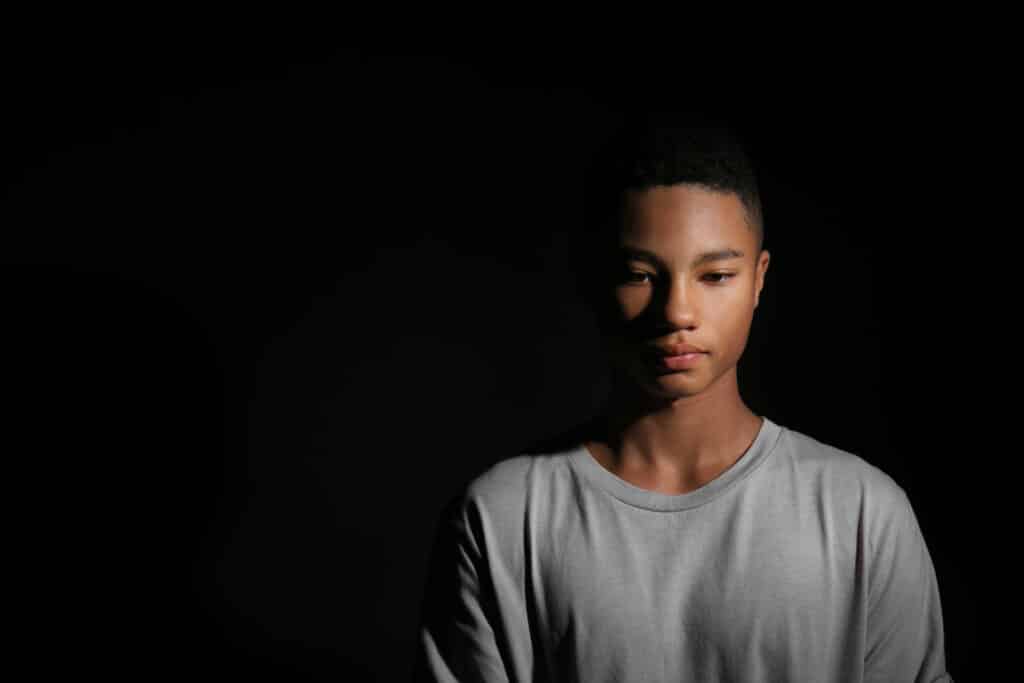Mood disorder is a serious mental health condition affecting millions globally. According to NIMH, 21.4% of American adults experience a type of mood disorder at some point. Many people don’t know they have a mood disorder because the condition doesn’t manifest as such immediately. It is often intertwined with other mental illnesses. In this blog, you will understand the signs of a mood disorder, the types, and possible treatment solutions.
Satori Health offers comprehensive mental health treatment in the San Fernando Valley. Contact us today to learn more about our outpatient treatment options in Los Angeles.
What is a Mood Disorder?
A mood disorder is a mental health condition characterized by persistent feelings of sadness, hopelessness, or loss of interest in activities that affect a person’s ability to function in their daily life.
At first, the person feels it’s nothing because mood change is normal. Unfavorable situations can trigger a mood swing. However, it will become a mood disorder if symptoms present for several weeks or longer. These conditions can be treated with a combination of therapy, medication, and lifestyle changes.
Types of Mood Disorders
Types of mood disorders include:
Major Depressive Disorder: persistent sadness, loss of interest in activities, and a lack of energy characterize Major Depressive Disorder (MDD). Symptoms of MDD may include changes in appetite and sleep patterns, fatigue, feelings of worthlessness or guilt, difficulty concentrating, and thoughts of suicide. MDD is a serious condition that can disrupt daily life and cause significant impairment in social, occupational, and other areas of functioning. It is a common condition affecting millions of people worldwide.
Persistent Depressive Disorder: is characterized by a long-term (two years or longer) low mood. The symptoms of PDD are similar to those of major depression, but they are less severe and longer lasting. Symptoms of PDD may include hopelessness, low self-esteem, difficulty concentrating, lack of energy, and changes in appetite or sleep patterns. PDD is a chronic condition and can significantly affect a person’s ability to function in their daily life.
Bipolar Disorder: characterized by episodes of both mania (elevated or irritable mood) to depression (low mood). These episodes can last several weeks or even months and are severe enough to interfere with daily functioning. According to WHO statistics, 46 million people globally have bipolar disorder.
Cyclothymic Disorder: A mild form of bipolar disorder characterized by alternating periods of hypomania (mild mania) and mild depression lasting at least two years. The symptoms of hypomania may include excessive happiness, irritability, racing thoughts, and increased energy and activity, while the symptoms of depression may include feelings of sadness, hopelessness, and lack of energy. People with the cyclothymic disorder may also have periods of normal mood between episodes. It is less severe than bipolar disorder but more severe than dysthymia.
Seasonal Affective Disorder: related to seasonal changes, typically beginning in the fall and ending in the spring. SAD is characterized by symptoms such as sadness, hopelessness, low energy, and changes in appetite and sleep patterns. The exact cause of SAD is unknown, but it is thought to be related to changes in the levels of certain brain chemicals, such as serotonin and melatonin, which can be affected by reduced exposure to sunlight during the fall and winter months.
Premenstrual Dysphoric Disorder: a form of premenstrual syndrome (PMS) characterized by mood swings, depression, anxiety, irritability, and physical symptoms. It typically affects women. Symptoms of PMDD usually occur a week or two before a woman’s menstrual period and can include irritability, sadness, anxiety, mood swings, fatigue, bloating, and breast tenderness. These symptoms are severe enough to disrupt a woman’s daily life and can include problems with work, school, and relationships.
What Are the Symptoms of a Mood Disorder?
Mood disorder symptoms can include persistent feelings of sadness or hopelessness, loss of interest in activities, changes in appetite and sleep patterns, difficulty concentrating, guilt or worthlessness, and thoughts of suicide. Other symptoms can include irritability, agitation, and changes in energy levels. It is essential to note that symptoms can vary depending on the type of mood disorders and the individual experiencing them.
How to Treat Mood Disorders
Treatment for mood disorders, such as depression and bipolar disorder, typically includes a combination of medication and therapy. Antidepressants can help to regulate mood and alleviate symptoms of depression. Mood stabilizers, such as lithium, can treat bipolar disorder. In addition, therapy, such as cognitive-behavioral therapy (CBT) and interpersonal therapy (IPT), can help individuals learn coping mechanisms and improve their relationships with others.
Electroconvulsive therapy (ECT) is also an option for treatment-resistant cases. It’s important to note that treatment plans should be tailored to the individual and their specific needs and should be discussed with a qualified healthcare professional.
Satori Health Offers Mood Disorder Treatment Programs in Southern California
It is possible to treat mood disorders. If you are diagnosed with a mood disorder or know a loved one with a mental condition, you must seek help. And if you are living in Southern California, Satori Health is the best place to seek assistance.Satori Health is an evidence-based mental treatment center committed to clients’ lasting recovery. With a world-class facility and dedicated staff, we offer comprehensive mental health therapy services, such as CBT, DBT, individual therapy, and intensive outpatient programs. Our medical team follows a holistic approach to helping patients cope with mood disorders. We live by our slogan, “real mental health treatment for real people.”



